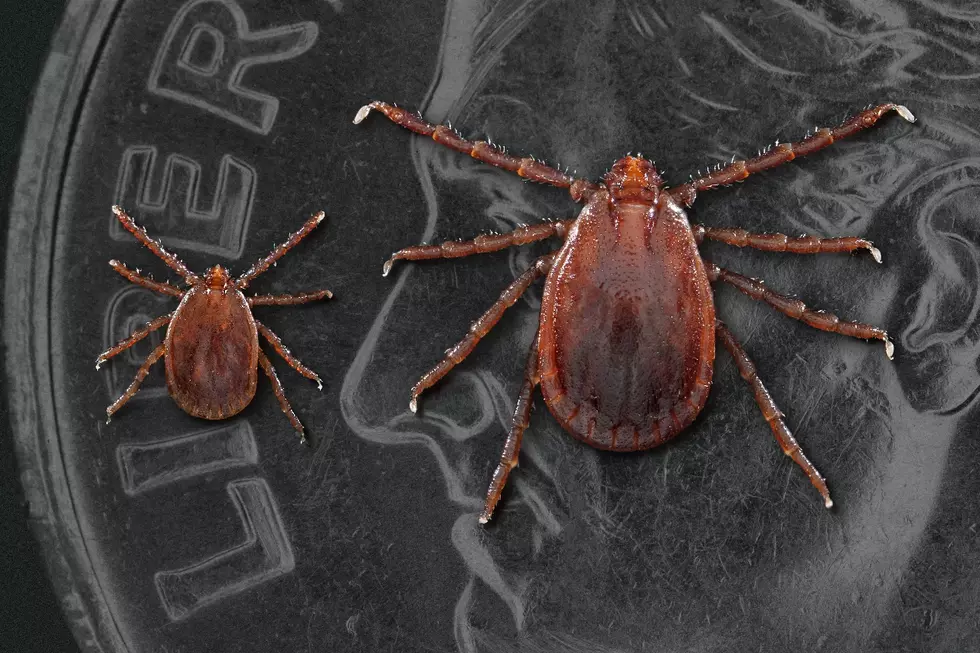
Exotic Deadly Tick Spreading Widely in the U.S. Found in Three New York Counties
The new, exotic, tick that has been spreading widely in the U.S. is now spreading in New York.
The Haemaphysalis tick, commonly known as the East Asian or Longhorned tick has been found in three New York counties according to the CDC.....Richmond, Rockland and Westchester counties. And experts are still trying to figure out how it spreads and the impact it'll have.
“The full public health and agricultural impact of this tick discovery and spread is unknown,” said Ben Beard, Ph.D., deputy director of CDC’s Division of Vector-Borne Diseases. “We are concerned this tick, which can cause massive infestations on animals, on people, and in the environment, is spreading in the United States.”
The tick was first found in the U.S. in August 2017 on a sheep in New Jersey. It spread into New York almost a year later when it was found in Westchester County in July 2018. Now 45 counties in nine states — Arkansas, Connecticut, Maryland, North Carolina, New Jersey, New York, Pennsylvania, Virginia, and West Virginia, have reported finding the ticks on people, wildlife, and domestic animals.
The tick could pose problems for the New York agricultural industry. Symptoms in cows include fever, lack of appetite, dehydration, weakness and labored breathing. "We encourage farmers to be vigilant and keep a watchful eye out for this tick to protect their animals and stay ahead of any potential problems for the livestock industry in New York State," said State Agriculture Commissioner Richard A. Ball.
The longhorned ticks are known to bite humans too, causing severe fever with thrombocytopenia syndrome, according to the CDC. Symptoms usually include fever, thrombocytopenia, and leukocytopenia in other parts of the world but the Health Department says "more research is needed to determine whether this can happen in the United States."
The New York Health Department offers tips on protecting against ticks:
*Wear light-colored clothing with a tight weave to spot ticks easily.
*Wear enclosed shoes, long pants and a long-sleeved shirt. Tuck pant legs into socks or boots and shirt into pants.
*Check clothes and any exposed skin frequently for ticks while outdoors.
*Consider using insect repellent.
*Stay on cleared, well-traveled trails. Walk in the center of trails. Avoid dense woods and bushy areas.
*Avoid sitting directly on the ground or on stone walls.
*Keep long hair tied back, especially when gardening.
*Bathe or shower as soon as possible after going indoors (preferably within two hours) to wash off and more easily find ticks that may be on you.
*Do a final, full-body tick check at the end of the day (also check children and pets), and remove ticks promptly.
More From Big Frog 104









